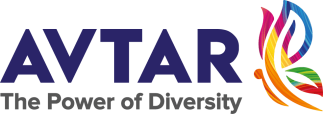Imagine coming home from a long day at work feeling exhausted and drained. You sit down to relax, but you can’t focus on anything. All you can think about is the pile of work still waiting for you on your desk.
Now imagine coming home from a long day at work feeling fulfilled and appreciated. You know that your hard work is valued by your employer and your colleagues.
The difference between these two scenarios is employee appreciation. When employees feel appreciated, they are more likely to be engaged, motivated, and productive. They are also more likely to stay with the company for the long term.
So, how can you make your employees feel appreciated?
The first step is to learn their primary language of appreciation. Do they prefer words of affirmation, quality time, acts of service, gifts, or physical touch? Once you know their primary language, you can start to show them your appreciation in ways that they will find meaningful. These languages are an extension of Dr. Gary Chapman and Paul White’s “The 5 Languages of Appreciation in the Workplace”. They matter because they recognize that employees have unique preferences for how they like to receive appreciation, and catering to these preferences can boost morale, productivity, and job satisfaction.
Language 1: Words of affirmation
Some employees are like lyricists; they thrive on words. To make them feel appreciated, employers can compose heartfelt emails, give shout-outs in meetings, or leave sticky notes saying “Great job!” on their desks. The power of well-chosen words can’t be overstated.
Language 2: Quality time
For others, time is the ultimate gift. Just like a treasured meeting with a dear friend, employers can carve out one-on-one time. This can be mentoring sessions, casual coffee chats, or even walking meetings where the focus is solely on that employee.
Language 3: Acts of service
Some see appreciation in action. Employers can roll up their sleeves and help employees clear a backlog of tasks, offer support during crunch periods, or assist with a daunting project.
Language 4: Tangible gifts
For those who appreciate tangible tokens, gifts are the golden ticket. Employers can provide bonuses for a job well done, celebrate milestones with thoughtful presents, or even award gift cards. It’s like handing them a certificate of appreciation.
Language 5: Appropriate physical touch
While this may not be the most common language in the workplace, appropriate physical gestures such as a congratulatory high-five, or a warm handshake can convey appreciation effectively.
So, think of the workplace as a vibrant tapestry of languages, where employers are the translators, helping each team member feel appreciated, valued, and understood.






